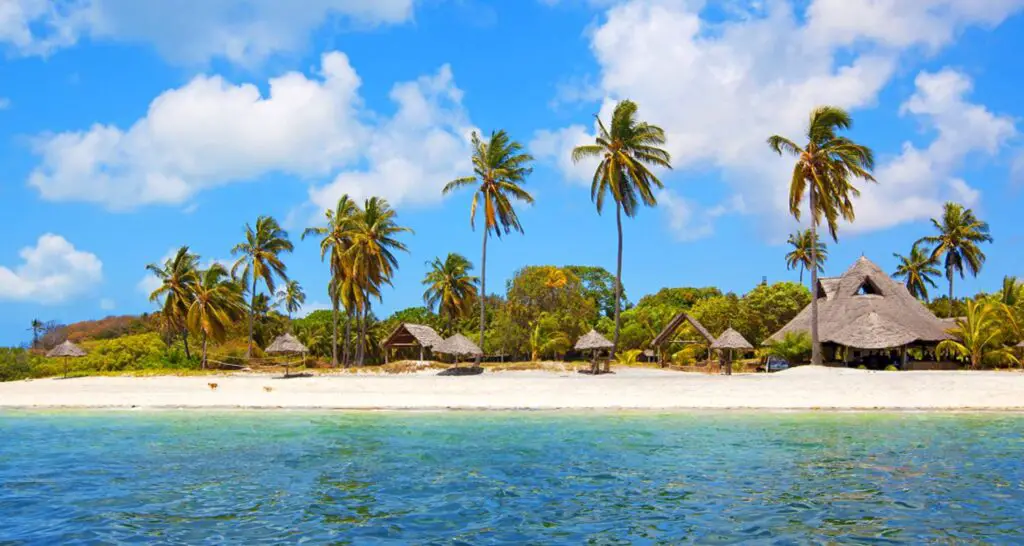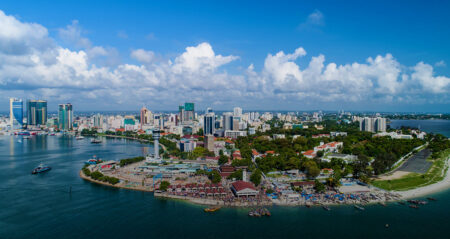- HotelOnline.co, has joined up with MTI Investment to launch a long-term booking platform for the island.
- Started with the intention of assisting travel agencies in making more informed booking decisions, the portal now serves as a definitive resource for those seeking out hotels on Zanzibar that are confirmed to employ environmentally responsible waste management systems.
- Sustainable tourism is beneficial to Zanzibar since it helps the local economy by providing jobs for the population.
A major player in the African online travel agency industry, HotelOnline.co, has joined up with MTI Investment to launch a long-term booking platform for the island. This website, known as Sustainable Zanzibar, is meant to encourage ecotourism by highlighting accommodations that are dedicated to green policies.
By becoming a member of Sustainable Zanzibar, hotels will be able to showcase their commitment to sustainability, receive praise for their efforts, and connect with a wide audience of booking agents and eco-conscious tourists. Hotels can promote themselves to the expanding market of socially and environmentally conscientious travelers by listing themselves on this website.
Started with the intention of assisting travel agencies in making more informed booking decisions, the portal now serves as a definitive resource for those seeking out hotels on Zanzibar that are confirmed to employ environmentally responsible waste management systems. Sustainable Zanzibar originally focused on recycling and composting, but has subsequently broadened its focus to include energy efficiency, water management, and community outreach. All hotels listed on the portal have been checked to make sure they are up to par with sustainable tourism requirements.
HotelOnline.co and MTI Investment’s collaboration has done great things for Zanzibar’s tourism industry. Promoting eco-friendly lodging options is one way Sustainable Zanzibar is working to make the tourism industry in the region more eco-friendly and responsible. Responsible tourism has the potential to boost employment and the local economy, which is a win-win for both the environment and the local community.
“Zanzibar is the most vibrant tourism market in East Africa. Unfortunately, the travel and hospitality sector has previously left a heavy environmental footprint on this beautiful island. I believe it is the responsibility of every industry player to help accelerate the positive change we are seeing, and with the Sustainable Zanzibar initiative, we, as HotelOnline, are helping promote those who strive to make tourism greener and more sustainable,” said Håvar Bauck Co-Founder and CEO of HotelOnline.co
All things considered, the Sustainable Zanzibar portal is a great resource for hotels and visitors alike. The platform it provides for sustainable and ethical tourism is paving the way for a brighter future for Zanzibar and the tourism sector as a whole.
Zanzibar’s Potential for Long-Term, Sustainable Tourism
It’s no surprise that the little archipelago of Zanzibar off Africa’s eastern coast has become a popular vacation spot for those in search of some rays and beach. Yet, the island has had a number of difficulties over time, ranging from environmental degradation to socioeconomic inequity. More and more people are interested in ecotourism, which is benefitting Zanzibar in many ways.
To minimize negative effects on the local community, visitors to a destination practice sustainable tourism. Its goals include protecting the area’s natural and cultural treasures while providing a memorable experience for visitors. Sustainable tourism is being actively promoted on Zanzibar as a means of preserving the island’s natural resources and cultural heritage without negatively impacting the island’s tourism economy.
Sustainable tourism is beneficial to Zanzibar since it helps the local economy by providing jobs for the population. Working with local communities to give them access to tourism-related education and job opportunities is a key component of many sustainable tourism projects. Not only does this aid the local economy, but it also fosters a sense of communal pride and ownership, which can contribute to a more peaceful environment.
Sustainable tourism is helping Zanzibar in many ways, including by bolstering preservation initiatives. The green sea turtle and the Zanzibar red colobus monkey are just two of the many endangered species that call Zanzibar home. Efforts to foster sustainable tourism are striving to ensure the survival of these animals by encouraging visitors to act responsibly and reaching out to the general public. Both the island’s unique biodiversity and the sense of responsibility fostered in visitors benefit from this practice.

“Tourism in Zanzibar has changed dramatically in the past two decades. From the backpacker’s paradise it used to be until the 1990s and early 2000s, the island is increasingly becoming a high-end destination. This has brought with it some serious challenges in terms of ecological degradation. Tourists, however, are also becoming very conscious of their own contribution to these problems, and the rising demand for eco-friendly options is a major trend in the industry. We are proud to be part of this initiative, and to help bring forward those who drive this transformation,” Håvar Bauck explained.
At long last, sustainable tourism is assisting in raising Zanzibaris’ standard of living as a whole. Sustainable tourism projects involve assisting in the provision of basic necessities such as potable water, sanitary facilities, and medical care to local people by fostering these practices and encouraging responsible tourists. Tourists and locals alike will reap the benefits of this improvement to the community.
In conclusion, Zanzibar is benefiting in many ways from ecotourism. Zanzibar’s tourism industry is becoming more environmentally conscious and community-minded as a result of sustainable tourism’s positive effects in the areas of job creation, conservation, cultural preservation, and general economic growth. It seems likely that Zanzibar will continue to benefit from this significant shift as the desire for sustainable tourism increases in the years to come.
Read: Ecotourism and its prominence in East Africa











